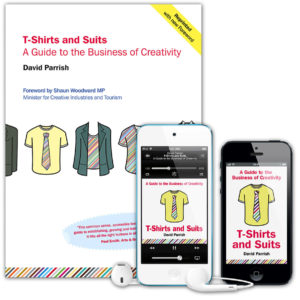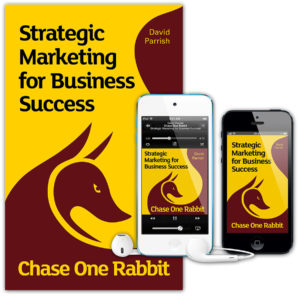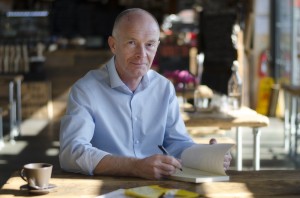It can be stimulating and inspiring to work with other creative people on new projects, so it’s worth thinking about what makes creative collaborations work well.
The first thing to establish is a common purpose, or ‘mission’ for the collaborative project. Ralph Ardill, founder of the Brand Experience Consultancy, calls this a ‘manifesto’ – a short statement to help keep everyone focused on the goals of the project.
Collaborations work best when people with complementary skills come together to work on a project – for example a writer and illustrator. If the project is to be a commercial success as well as a creative achievement, then other so-called ‘non-creative’ people might be needed too. There might also be a role for a distributor, lawyer, producer, accountant, technician and/or manager. Sometimes the best ideas – as well as specialist skills – can come from people outside the creative sector. An effective team needs people playing different roles, so techniques and tools such as the Belbin team roles model can be useful when making sure your team is complete and well-balanced.
Creative collaborations require not only plenty of creativity and a shared vision of what success will look like, but also a clear understanding about some potentially troublesome issues such as management, money and intellectual property. This means dealing with awkward questions from the outset, such as
1. Who is responsible for the project’s success (or if it fails)?
2. Who gets paid what?
3. Who will own the intellectual property created?
It’s best to be transparent from the start about these and any other matters that could surface later and potentially cause problems.
Since intellectual property (IP) is the commercial value at the heart of creative collaborations, it’s important to be clear about the moral rights and commercial rights associated with the IP created. In other words: Will [all] the creators be credited? How will income generated be distributed? One way to deal with this matter when something of commercial value is produced through collaborative endeavour is to ‘pool’ all the project’s IP and put it into a single ‘pot’ which is collectively owned. For example all the contributors can transfer or ‘assign’ their IP into a company and then each of them can be give shares in that company. (A company set up for a particular project is sometimes called a ‘Single Purpose Vehicle’.)
To prevent problems later on, some kind of written contract should be prepared which deals with all these issues at the beginning of the project and prompts everyone concerned to deal with potentially troublesome matters before they arise.
As in all projects and teams, effective communication is vital. It’s one of the responsibilities of leadership to set the tone of the communications and to ensure that everyone is kept informed. Sometimes jargon can be a problem unless everyone is well-versed in the same terminology, which is unlikely if the group is as diverse as it needs to be. It’s only when people know each other well enough and are comfortable with each other’s personal styles that short emails can be as effective as longer meetings. Even in the smallest teams of just two or three people, there needs to be an understanding of ‘how we do things around here’, which is shorthand for the ‘corporate culture’ of an organisation.
In conclusion, the most effective creative collaborations take account of:
Common Purpose
Creative endeavour
Commercial issues
Complementary skills
Contracts
Communication
Culture
Being aware of all these dimensions of creative collaborations at an early stage will help to plan ahead and achieve both creative and commercial success.
Creative collaborations
There is more information about creative collaborations in David’s books, other publications, videos and free resources.
David Parrish inspires and empowers creative entrepreneurs world-wide as an international creative industries speaker, consultant, trainer and author.
Business Adviser – Creative and Digital Industries
Creative and digital businesses grow with the help of David’s expertise in creative entrepreneurship. He shares his expertise through his speeches, training workshops, coaching and books on business growth.
David advises businesses on strategic development, marketing, leadership and growth in his capacity as a qualified and experienced business adviser and management consultant, working world-wide.
He helps clients by drawing on his own direct experience as an entrepreneur as well as his work helping hundreds of creative, digital, cultural and arts businesses around the world. His direct experience is backed up by academic qualifications and professional accreditations in business strategy, marketing and leadership. He is a Chartered Institute of Marketing ‘Chartered Marketer’. David has an MBA (with distinction). In addition, he is a Fellow of the Institute of Leadership and Management (FInstLM). He is also honoured to be a Fellow of the Royal Society of Arts.
David is a UK expert and international creative industries speaker. He has helped hundreds of businesses in more than 60 countries to achieve greater success on their own terms. This is achieved by using smart business development techniques that fit with their creativity, ambitions and values. His creative industries consulting focuses on the needs of creative industries businesses, cultural enterprises and arts organisations.
Successful creative enterprises integrate creativity and business. David’s T-Shirts and Suits® approach helps creative people (‘T-Shirts’) use smart business thinking (‘Suits’). His entertaining and inspirational speeches illustrate ways in which businesses can use creative business models and powerful business techniques to achieve greater success. His creative industries consulting with individual businesses guides them to success by combining their creative passion, strengths and goals with a winning business strategy tailored to their own needs, values and circumstances.
Creative Business Books, eBooks and Audiobooks
David has written two books and several other publications especially for creative businesses. He brings his own experience of setting up and growing businesses in the creative and cultural industries. David is actively involved in the creative and digital industries as a company director and management consultant. He also shares the learning he has gained from working with hundreds of successful creative enterprises around the world. His books are available in paperback, eBook and Audiobook formats. They have been translated into several languages and published in various countries in several continents.
What they say about David Parrish…
Here are a few examples of what people say about David Parrish. His clients worldwide say how they have benefited from David’s creative industries keynote speeches. They also recommend his business advice, training, presentations, lectures and books:
“It was a pleasure to invite David to give the keynote speech at the Third International Creative Industries Conference in Novi Sad, Serbia. His speech about ‘Creative Business in the Digital Economy’ was enlightening. It was ideal for our audience that included startups, government officials, investors and agencies from Serbia and other countries. David’s speech was also broadcast on TV to reach an even wider audience. We were delighted with the positive impact that David made on the creative industries here in Serbia.”
Tatjana Kalezic. Creative Industries Cluster of Vojvodina KVIK.
http://www.kvik.rs
“The choice to work with David was definitely the right one. In less than two days time we had crafted a cohesive short term and long term strategy that provides for desired growth, protects our IP, enables investment, and allows us to retain creative control of our technology. David’s ability to listen to your situation, to understand it, and then determine a course of action based on your specific needs and goals is rare and a makes David a joy to work with.”
– Aric Wanveer. Zero Gravity Creations LLC, Baltimore, USA
“David Parrish was a special guest of Creative Industries Summer School held in Moscow. Creative entrepreneurs from all over Russia said that David’s presentation was very inspiring, entertaining and very useful for them. His presentation “Creativity and Business: How to Succeed as a Creative Entrepreneur” was amazing and I am sure it will help develop creative entrepreneurship in Russia. David is a very bright and powerful expert.”
– Olga Kizina. Director. Creative Industries Agency. Moscow. Russia.
“Workshop participants were very impressed and inspired by David’s speech and book because he avoided using jargon, gave clear illustrations to describe what creative business is about and explained the general principles of running a creative business. He talked about some important issues, such as intellectual property, business formulas, knowing your competitors, knowing your market, and being prepared to say No.”
– HsinYi Ku. British Council, Taiwan
“David writes about creative business better than anyone I know.”
– Wayne Morris. The Creative Edge. New Zealand.
“David Parrish is a very inspirational speaker. The way he illustrates his points is excellent. He makes you laugh and instantly you start to think about your own ideas and projects.”
– Eli Folkestadaas. British-Norwegian Chamber of Commerce. Oslo, Norway.
Read more testimonials about David’s work as an international creative industries speaker, consultant, adviser, trainer and author of two books, other publications and many articles.
David’s Background, Experience and Expertise
Dave Parrish has been directly involved in the creative economy and cultural economy for more than 20 years, as an entrepreneur, manager, company director, management consultant, business adviser, coach, mentor, trainer, writer, and international creative industries speaker. For an insight into his personal background, business experience, values and his own perspective on creativity and business, read his story.


